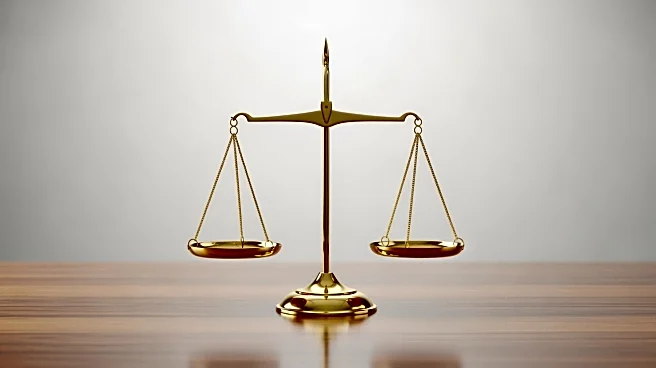What's Happening?
Cameroon's Constitutional Council has announced the re-election of President Paul Biya for an eighth consecutive term. At 92 years old, Biya is the world's oldest head of state, and his victory was declared
with 53.7% of the vote, surpassing his main challenger, Issa Tchiroma Bakary, who garnered 35.2%. Despite claims of a close result and victory assertions by Bakary, Biya's win was anticipated by many. His decision to run again after 43 years in power has been contentious, raising questions about his governance style, which often involves extended stays abroad and limited public engagement. Biya's leadership has been marked by balancing the country's complex social, regional, and linguistic differences, although his administration has faced criticism for its handling of protests and opposition challenges.
Why It's Important?
The re-election of President Biya holds significant implications for Cameroon, a nation grappling with social and political tensions. Biya's continued leadership may maintain stability in a country marked by regional and linguistic diversity, but it also risks perpetuating dissatisfaction among opposition supporters. His governance style, characterized by limited public engagement and decision-making, raises concerns about the country's political direction and development. The election outcome may further strain relations between the government and opposition groups, potentially leading to increased protests and unrest. The situation underscores the challenges of maintaining national unity and addressing the demands for reform and change.
What's Next?
Following the election, Cameroon faces potential unrest as opposition supporters express frustration and anger over the results. Reports of protests and clashes with security forces have emerged, particularly in Douala and Garoua. The government's response to these protests and its ability to manage dissent will be crucial in maintaining stability. Additionally, the absence of a clear successor to Biya raises questions about the future political landscape and succession planning within the ruling party. The international community may closely monitor the situation, considering Cameroon's strategic importance in the region.
Beyond the Headlines
The election highlights deeper issues within Cameroon's political system, including the limits of semi-authoritarian rule and the challenges of achieving meaningful reform. Biya's leadership style, which often involves delegating decision-making to ministers, leaves uncertainty about the government's long-term vision. The ongoing crisis in English-speaking regions further exposes the limitations of Biya's cautious approach, emphasizing the need for comprehensive dialogue and reconciliation efforts. The election also raises ethical questions about the concentration of power and the role of opposition in shaping the country's future.









